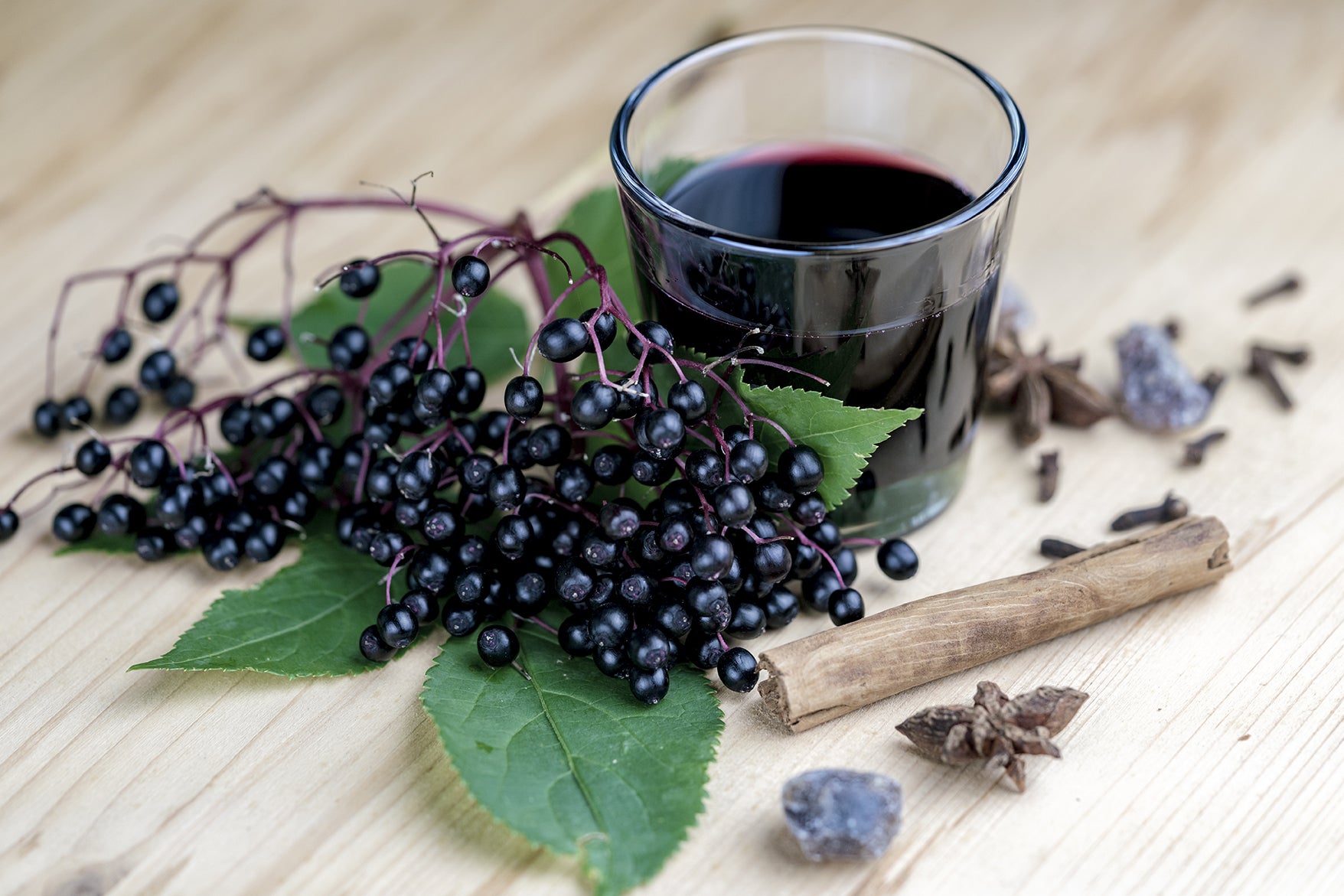Supercharged Immunity

Enhancing immune response and protecting against pathogens is always important—and now more than ever. Here, nine science-backed supplements to keep you safe:
Medicinal Mushrooms
Medicinal mushrooms are high in powerful compounds that improve overall immune response and protect against viral and bacterial infections. Some of the best: chaga (Inonotus obliquus), Turkey tail (Coriolus versicolor or Trametes versicolor), shiitake (Lentinula edodes) and reishi (Ganoderma lucidum). You’ll find them as individual supplements or in combination formulas, in capsules, tinctures or teas.
Zinc
Zinc, an important trace mineral that’s often lacking in a plant-based diet, is key to a healthy immune system. It enhances the production of infection-fighting white blood cells that destroy viruses and bacteria, and studies show even mild deficiencies can increase the risk of infection. Studies show zinc inhibits viral replication, protects against respiratory viruses, and can reduce the length and severity of infections by up to 40 percent, especially if it’s taken as a lozenge immediately after the onset of symptoms. Look for it in capsules or tablets for everyday support, and as lozenges to take within 24 hours of symptoms.
Related: Why You Should Take Probiotics and Prebiotics
Pelargonium
Pelargonium, from the roots of a plant known as African Geranium, has potent anti-viral activity and can treat bronchitis and other acute respiratory tract infections. It’s thought to inhibit infection by preventing the replication of respiratory viruses and enhancing immune response. You’ll find it under the brand name Umcka, or as the ingredient umckaloabo, in liquid supplements, cough syrups, tablets and lozenges.
Algae Oil
Algae oil is a rich source of both EPA and DHA omega-3 fats, frequently lacking in vegan and vegetarian diets. A number of studies show EPA and DHA enhance immune cell response, reduce inflammation, inhibit viral replication and protect against infections. Research also shows algae oil is similar to fish and fish oil in terms of EPA and DHA bioavailability.
Related: 5 Foods That Help Fight Colds
Probiotics
Probiotics, important for gut health, also have potent anti-viral and immuno-supportive activity and can protect against influenza and other viral infections. Studies also show probiotics can significantly shorten the duration of colds and respiratory infections. Some studies suggest multi-strain formulas are more effective than single strains, and a variety of strains may be more important than quantity. Choose multi-strain, stable forms that don’t require refrigeration, and look for those that are processed to withstand harsh stomach acids.
Elderberry
Elderberry, a dark purple berry from the elder tree, is rich in antioxidant polyphenols that enhance immune activity and inhibit a virus’ ability to spread. In one study, black elderberry extract protected against 10strains of influenza virus, and significantly shortened the duration of flu symptoms. In another study of people who had the flu, almost 47 percent of those who took an elderberry extract for three days had a complete resolution of their symptoms. You’ll find it liquid supplements, cough syrups or lozenges; it’s best taken daily, or as soon symptoms appear.
Astragalus
Astragalus, an adaptogenic herb used in Chinese medicine for thousands of years, improves immune function and has powerful anti-viral activities. A number of studies show astragalus inhibits the growth of viruses and other pathogens, protects against influenza and reduces upper respiratory tract infections, especially in children. Look for it in tinctures, powders or capsules, or in combination formulas.
Vitamin D
Vitamin D is critical for immune function, and high vitamin D levels have been linked with a reduced risk of upper respiratory tract infections. Supplementing with vitamin D can protect against infection—in one study, vitamin D cut the risk of respiratory infection in half. While the RDIs for vitamin D were updated to 600 IU per day, research suggests a higher intake—as much as 3000 IU per day—is optimal. Because vitamin D supplements can be derived from animal sources, look for vegan forms in capsules, tablets or liquids.
Related: Why We Need Vitamin D
Andrographis
Andrographis, (also called Indian echinacea), from the root of a plant native to South Asia supports immune function, prevents infection and lowers the duration and severity of illnesses. A number of studies show andrographis inhibits viral replication and can significantly reduce symptoms of respiratory tract infections. In one study, it was 53 percent more effective than a placebo in reducing respiratory tract infection. Andrographis may be especially effective when combined with Siberian ginseng. You’ll find it in capsules, tablets or tinctures, or in combination respiratory health formulas.
RELATED: Is It Possible to Fully Embrace Yoga Without Going Vegan?
Get more of what you love from VT. Follow us on Instagram, Facebook, and Twitter.